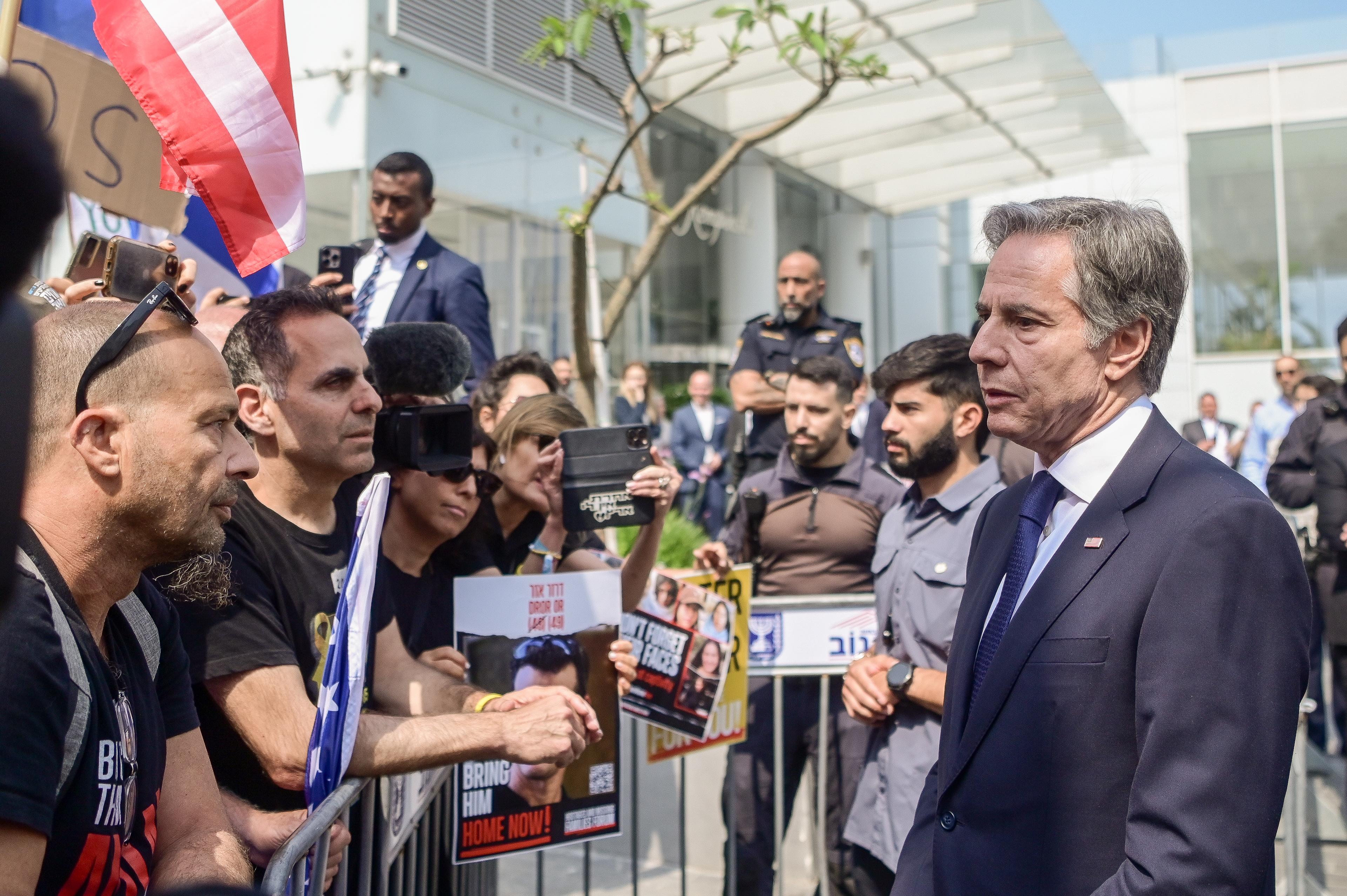Nearly as pathetic as Joe Biden
WATCH: Anthony Blinken's shocking interview about Hamas
Secretary of State Antony Blinken's most candid interview yet reveals the intense behind-the-scenes drama of U.S. diplomacy in the Israel-Hamas war, including a previously unknown nine-hour showdown with Israeli leaders over humanitarian aid. The top diplomat paints a complex picture of American influence over Israel's military campaign, while defending controversial U.S. positions

In a revealing interview, Secretary of State Antony Blinken has pulled back the curtain on America's delicate diplomatic dance in the Israel-Hamas war, describing unprecedented confrontations with Israeli leadership and defending U.S. policy against mounting criticism.
Recounting his visit to Israel just five days after October 7, Blinken described witnessing "horrors beyond anyone's imagination." This experience shaped three core U.S. objectives: preventing another October 7, containing the conflict, and protecting Gaza's civilians - goals that have sometimes seemed at odds with each other.
The Secretary revealed a dramatic early showdown with Israeli leadership, spending nine hours arguing for humanitarian aid access to Gaza. "I told the prime minister: I'm going to call the President and tell him not to come if you don't allow this assistance to start flowing," Blinken disclosed, demonstrating rare public pressure on Israel.
While defending Israel's right to eliminate Hamas, which he claims has largely been achieved militarily, Blinken acknowledged periods where Israel's humanitarian efforts fell short. His careful diplomatic language was evident when discussing civilian casualties - notably avoiding direct comment on UN figures citing 45,000 Palestinian deaths while rejecting genocide allegations.
Here's how he answered this question: "Did you have a partner in Benjamin Netanyahu? Because it was reported that he blocked a ceasefire deal in July that would have led to the hostages being released. Is that true?"
No, that’s not – that’s not accurate. What we’ve seen time and again is Hamas not concluding a deal that it should have concluded. There have been times when actions that Israel has taken have, yes, made it more difficult, but there has been a rationale for those actions even if they’ve sometimes made getting to a conclusion more difficult. For example, the killing of Sinwar – in the absence of Sinwar, where you had basically a single decider, that happened just at the point where we thought we might be able to bring this agreement over the finish line. All of a sudden there’s not a single decider and it’s a lot harder to get a decision out of Hamas.
So all of these actions have second- and third-order effects that you have to calculate. But fundamentally, look, one of the things that I’ve found a little astounding throughout is that for all of the understandable criticism of the way Israel has conducted itself in Gaza, you hear virtually nothing from anyone since October 7th about Hamas. Why there hasn’t been a unanimous chorus around the world for Hamas to put down its weapons, to give up the hostages, to surrender – I don’t know what the answer is to that. Israel on various occasions has offered safe passage to Hamas’s leadership and fighters out of Gaza. Where is the world – where is the world in saying, yeah, do that, end this, stop the suffering of people that you’ve brought on?
Now, again, that – it doesn’t absolve Israel of the way of its actions in conducting the war. But I do have to question how it is we haven’t seen a greater sustained condemnation and pressure on Hamas to stop what it started and to end the suffering of people that it initiated."
Blinken pushed back against suggestions that Israeli Prime Minister Benjamin Netanyahu ignores U.S. concerns, pointing to modified operations in Rafah as evidence of American influence. However, he admitted that public criticism of Israel often backfires, making Hamas less likely to agree to ceasefire terms.
Looking ahead, Blinken expressed optimism about post-conflict possibilities, including potential Saudi-Israeli normalization tied to a Palestinian state pathway. However, he acknowledged the deep trauma affecting both Israeli and Palestinian societies that could complicate any resolution.
On hostages, Blinken confirmed his belief that some remain alive, suggesting the conflict might end on terms similar to the U.S.-proposed hostage/ceasefire agreement currently under discussion.
The wide-ranging interview shows Blinken attempting (note: NOT succeeding) to thread a diplomatic needle: maintaining tenuous support for Israel while pushing for humanitarian considerations and seeking a path to peace that addresses both Israeli security and Palestinian aspirations.